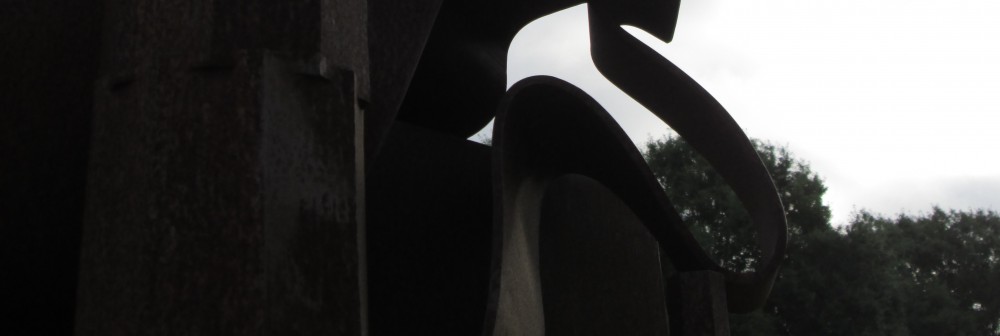I’ve been reading a lot lately, and realizing how much in the last year since Chris and I have lived together that that hasn’t been the case. When I was single, I read about hour before bed every night–it could be poetry, it could be history or some other non-fiction, it could be memoir, or a murder mystery. Sometimes I’d read all day on a Saturday, and even if I hadn’t gotten the laundry done, I’d feel like I had accomplished something valuable. But especially before bed, it was good to do because it has a sedative effect–and the lack of reading plus the incessant snoring (I’m sorry, honey, but you snore really bad) this past year has really frazzled me. I’m stressed out a lot.
So I’ve been making a concerted effort to read. And this is also helpful, because in my last post, I mentioned I was starting to stagnate and needed some fresh inspiration. I’ve read some articles on Shreveport history, including the State Fair and Holiday-in-Dixie, and I also read Goodloe Stuck’s really fantastic (but unfortunately, not academically documented) biography of Annie McCune, who was an Irish immigrant who followed the Confederate soldiers from New Orleans up north to Shreveport, settled, and opened her own bordello. He writes with humor, and a lot of the research is anonymous quotations from the men who used to go down to the Red Light District and see her or her girls, and some of it’s really funny.
McCune was a real entrepreneur as far as building business; she sold beer for instance, and was in good with the cops so never got harrassed, and she was quite the philanthropist, giving all kinds of monies to charities. Her house on 900 Fannin Street was one of the three most elegant/ top tier places in the District, and she regularly got her girls checked for “venereal disease.” Their health was McCune’s priority; men knew they could go there without worry of carrying something home to their wives.
Apparently Shreveport’s District was the largest in the country for a city its size–it was several blocks, and contained all manner of vice, from shotgun shack quickie whorehouses, to saloons, to places to get cocaine and other drugs, to the more palatial bordellos. It was huge tourist attraction, with people coming in from all over the Ark-La-Tex–kind of, I suppose, the way the riverboats are now, which I wholeheartedly disapprove of. (Of course, what does it say about me that I feel affection for a Red Light District where women are selling themselves for $3/ trick? That seems very counter my women’s studies background…)
Shreveport Madam came out in 1981, and it was kind of fun to read the acknowledgments, especially because I knew several of the people in the LSUS Archives Stuck thanked for help. As I said, I enjoyed it–it was really engaging and interesting, and I could tell that Stuck had a real affinity for McCune. I just wish that it had demonstrated academic rigor, beyond a few mentions, in passing, of newspaper articles–although it did have some maps and photographs. Of course, one of Stuck’s points was that there really isn’t much known about her, so he had to rely on eye-witness accounts. But when there’s no name attached to a quote, it kind of mitigates the authority and veracity of the account. At least, it does for me.
I actually think we have a copy of Shreveport Madam at our house back home; I want to say that I’ve seen it in my sister’s bedroom, although I can’t imagine how it got there. I’m sure she’s never read it, and I wouldn’t have either, except that the Archives had multiple copies and sent it (and other books, like Chronicles of Shreveport [which had a print run in the 1890’s of 500, and mine is #470ish], Glimpses of Shreveport, Caddo 1000, and Caddo Was…) to assist me in my Sibley Sisters poems. Anyway, I’m not sure how I will work Annie McCune or the Shreveport’s Red Light District into the poems, but it’s definitely good background.
And speaking (round-aboutly) of inspiration, tonight is PoetryAtlanta’s program, Talking Back to the Muse, in which poets are invited to read a favorite poem, and then read a response/ answer/ reflection/ something else poem we’ve written so the two, in proximity, can “dialogue.” There will be a ton of poets there tonight–Karen, Bob, Collin Kelley, Christine Swint, Rupert Fike, Robin Kemp, Megan Volpert, Dan Veech, Cleo Creech, Kodac Harrison, Ginger Murchison, many others. And me, of course. I’ll be reading a poem that was sparked by Jane Kenyon, who has always been one of my favorite poets.
I like to read Jane Kenyon because she is reflective and sees beauty in the smallest things; even though I have no point of reference for the farm life of New England, something about that way of life, as she presents it, comforts me and resonates with me… I’ve also been reading good ol’ Anne Sexton, whose poems are the antithesis of Jane Kenyon–they burn me, skin me alive. But I don’t read a lot of her work at one time–she wears me out.
Anyway… if you need something to do tonight at 8 p.m., come out to the Composition Gallery and enjoy poetry, wine, and good company: 1388 McClendon Avenue, Atlanta, 30307, not far from L5P. Call them for details: 678 982-9764.



